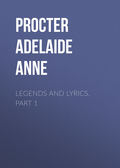
Чарльз Диккенс
The Posthumous Papers of the Pickwick Club. Volume 1 of 2
“My dear friends,” resumed Mr. Pickwick, “I am going to propose the health of the bride and bridegroom – God bless ’em (cheers and tears). My young friend, Trundle, I believe to be a very excellent and manly fellow; and his wife I know to be a very amiable and lovely girl, well qualified to transfer to another sphere of action the happiness which for twenty years she has diffused around her, in her father’s house. (Here, the fat boy burst forth into stentorian blubberings, and was led forth by the coat collar, by Mr. Weller.) I wish,” added Mr. Pickwick, “I wish I was young enough to be her sister’s husband (cheers), but, failing that, I am happy to be old enough to be her father; for, being so, I shall not be suspected of any latent designs when I say, that I admire, esteem, and love them both (cheers and sobs). The bride’s father, our good friend there, is a noble person, and I am proud to know him (great uproar). He is a kind, excellent, independent-spirited, fine-hearted, hospitable, liberal man (enthusiastic shouts from the poor relations, at all the adjectives; and especially at the two last). That his daughter may enjoy all the happiness, even he can desire; and that he may derive from the contemplation of her felicity all the gratification of heart and peace of mind which he so well deserves, is, I am persuaded, our united wish. So, let us drink their healths, and wish them prolonged life, and every blessing!”
Mr. Pickwick concluded amidst a whirlwind of applause; and once more were the lungs of the supernumeraries, under Mr. Weller’s command, brought into active and efficient operation. Mr. Wardle proposed Mr. Pickwick; Mr. Pickwick proposed the old lady. Mr. Snodgrass proposed Mr. Wardle; Mr. Wardle proposed Mr. Snodgrass. One of the poor relations proposed Mr. Tupman, and the other poor relation proposed Mr. Winkle; all was happiness and festivity, until the mysterious disappearance of both the poor relations beneath the table warned the party that it was time to adjourn.
At dinner they met again, after a five-and-twenty mile walk, undertaken by the males at Wardle’s recommendation, to get rid of the effects of the wine at breakfast. The poor relations had kept in bed all day, with the view of attaining the same happy consummation, but, as they had been unsuccessful, they stopped there. Mr. Weller kept the domestics in a state of perpetual hilarity; and the fat boy divided his time into small alternate allotments of eating and sleeping.
The dinner was as hearty an affair as the breakfast, and was quite as noisy, without the tears. Then came the dessert and some more toasts. Then came the tea and coffee; and then the ball.
The best sitting-room at Manor Farm was a good, long, dark-panelled room, with a high chimney-piece, and a capacious chimney, up which you could have driven one of the new patent cabs, wheels and all. At the upper end of the room, seated in a shady bower of holly and evergreens, were the two best fiddlers, and the only harp, in all Muggleton. In all sorts of recesses, and on all kinds of brackets, stood massive old silver candlesticks with four branches each. The carpet was up, the candles burnt bright, the fire blazed and crackled on the hearth, and merry voices and light-hearted laughter rang through the room. If any of the old English yeomen had turned into fairies when they died, it was just the place in which they would have held their revels.
If anything could have added to the interest of this agreeable scene, it would have been the remarkable fact of Mr. Pickwick’s appearing without his gaiters, for the first time within the memory of his oldest friends.
“You mean to dance?” said Wardle.
“Of course I do,” replied Mr. Pickwick. “Don’t you see I am dressed for the purpose?” Mr. Pickwick called attention to his speckled stockings, and smartly tied pumps.
“You in silk stockings!” exclaimed Mr. Tupman, jocosely.
“And why not, sir – why not?” said Mr. Pickwick, turning warmly upon him.
“Oh, of course there is no reason why you shouldn’t wear them,” responded Mr. Tupman.
“I imagine not, sir, I imagine not,” said Mr. Pickwick in a very peremptory tone.
Mr. Tupman had contemplated a laugh, but he found it was a serious matter; so he looked grave, and said they were a pretty pattern.
“I hope they are,” said Mr. Pickwick, fixing his eyes upon his friend. “You see nothing extraordinary in the stockings, as stockings, I trust, sir?”
“Certainly not. Oh certainly not,” replied Mr. Tupman. He walked away; and Mr. Pickwick’s countenance resumed its customary benign expression.
“We are all ready, I believe,” said Mr. Pickwick, who was stationed with the old lady at the top of the dance, and had already made four false starts, in his excessive anxiety to commence.
“Then begin at once,” said Wardle. “Now!”
Up struck the two fiddles and the one harp, and off went Mr. Pickwick into hands across, when there was a general clapping of hands and a cry of “Stop, stop!”
“What’s the matter?” said Mr. Pickwick, who was only brought to by the fiddles and harp desisting, and could have been stopped by no other earthly power, if the house had been on fire.
“Where’s Arabella Allen?” cried a dozen voices.
“And Winkle?” added Mr. Tupman.
“Here we are!” exclaimed that gentleman, emerging with his pretty companion from the corner; as he did so, it would have been hard to tell which was the redder in the face, he or the young lady with the black eyes.
“What an extraordinary thing it is, Winkle,” said Mr. Pickwick, rather pettishly, “that you couldn’t have taken your place before.”
“Not at all extraordinary,” said Mr. Winkle.
“Well,” said Mr. Pickwick, with a very expressive smile, as his eyes rested on Arabella, “well, I don’t know that it was extraordinary either, after all.”
However, there was no time to think more about the matter, for the fiddles and harp began in real earnest. Away went Mr. Pickwick – hands across – down the middle to the very end of the room, and half-way up the chimney, back again to the door – poussette everywhere – loud stamp on the ground – ready for the next couple – off again – all the figure over once more – another stamp to beat out the time – next couple, and the next, and the next again – never was such going! At last, after they had reached the bottom of the dance, and full fourteen couple after the old lady had retired in an exhausted state, and the clergyman’s wife had been substituted in her stead, did that gentleman, when there was no demand whatever on his exertions, keep perpetually dancing in his place, to keep time to the music; smiling on his partner all the while with a blandness of demeanour which baffles all description.
Long before Mr. Pickwick was weary of dancing, the newly-married couple had retired from the scene. There was a glorious supper downstairs, notwithstanding, and a good long sitting after it; and when Mr. Pickwick awoke, late the next morning, he had a confused recollection of having, severally and confidentially, invited somewhere about five-and-forty people to dine with him at the George and Vulture, the very first time they came to London; which Mr. Pickwick rightly considered a pretty certain indication of his having taken something besides exercise, on the previous night.
“And so your family has games in the kitchen to-night, my dear, has they?” inquired Sam of Emma.
“Yes, Mr. Weller,” replied Emma; “we always have on Christmas Eve. Master wouldn’t neglect to keep it up on any account.”
“Your master’s a wery pretty notion of keepin’ anythin’ up, my dear,” said Mr. Weller; “I never see such a sensible sort of man as he is, or such a reg’lar gen’l’m’n.”
“Oh, that he is!” said the fat boy, joining in the conversation; “don’t he breed nice pork!” The fat youth gave a semi-cannibalic leer at Mr. Weller, as he thought of the roast legs and gravy.
“Oh, you’ve woke up, at last, have you?” said Sam.
The fat boy nodded.
“I’ll tell you what it is, young boa-constructer,” said Mr. Weller, impressively; “if you don’t sleep a little less, and exercise a little more, ven you come to be a man you’ll lay yourself open to the same sort of personal inconwenience as was inflicted on the old gen’l’m’n as wore the pigtail.”
“What did they do to him?” inquired the fat boy, in a faltering voice.
“I’m a goin’ to tell you,” replied Mr. Weller; “he was one o’ the largest patterns as was ever turned out – reg’lar fat man, as hadn’t caught a glimpse of his own shoes for five-and-forty year.”
“Lor!” exclaimed Emma.
“No, that he hadn’t, my dear,” said Mr. Weller; “and if you’d put an exact model of his own legs on the dinin’ table afore him, he wouldn’t ha’ known ’em. Well, he always walks to his office with a wery handsome gold watch-chain hanging out, about a foot and a quarter, and a gold watch in his fob pocket as was worth – I’m afraid to say how much, but as much as a watch can be – a large, heavy, round manafacter, as stout for a watch, as he was for a man, and with a big face in proportion. ‘You’d better not carry that ’ere watch,’ says the old gen’l’m’n’s friends, ‘you’ll be robbed on it,’ says they. ‘Shall I?’ says he. ‘Yes, you will,’ says they. ‘Vell,’ says he, ‘I should like to see the thief as could get this here watch out, for I’m blest if I ever can, it’s such a tight fit,’ says he; ‘and venever I wants to know what’s o’clock, I’m obliged to stare into the bakers’ shops,’ he says. Well, then he laughs as hearty as if he was a-goin’ to pieces, and out he walks agin, with his powdered head and pigtail, and rolls down the Strand vith the chain hangin’ out furder than ever, and the great round watch almost bustin’ through his grey kersey smalls. There warn’t a pickpocket in all London as didn’t take a pull at that chain, but the chain ’ud never break, and the watch ’ud never come out, so they soon got tired o’ dragging such a heavy old gen’l’m’n along the pavement, and he’d go home and laugh till the pigtail wibrated like the perderlum of a Dutch clock. At last one day the old gen’l’m’n was a-rolling along and he sees a pickpocket as he know’d by sight, a-comin’ up, arm in arm vith a little boy with a very large head. ‘Here’s a game,’ says the old gen’l’m’n to himself, ‘they’re a-goin’ to have another try, but it won’t do!’ So he begins a-chucklin’ wery hearty, ven all of a sudden, the little boy leaves hold of the pickpocket’s arm, and rushes head foremost straight into the old gen’l’m’n’s stomach, and for a moment doubles him right up vith the pain. ‘Murder!’ says the old gen’l’m’n. ‘All right, sir,’ says the pickpocket, a-whisperin’ in his ear. And when he come straight agin, the watch and chain was gone, and what’s worse than that, the old gen’l’m’n’s digestion was all wrong ever arterwards, to the wery last day of his life; so just you look about you, young feller, and take care you don’t get too fat.”
As Mr. Weller concluded this moral tale, with which the fat boy appeared much affected, they all three repaired to the large kitchen, in which the family were by this time assembled, according to annual custom on Christmas Eve, observed by old Wardle’s fore-fathers from time immemorial.
From the centre of the ceiling of this kitchen, old Wardle had just suspended, with his own hands, a huge branch of mistletoe, and this same branch of mistletoe instantaneously gave rise to a scene of general and most delightful struggling and confusion; in the midst of which, Mr. Pickwick, with a gallantry that would have done honour to a descendant of Lady Tollimglower herself, took the old lady by the hand, led her beneath the mystic branch, and saluted her in all courtesy and decorum. The old lady submitted to this piece of practical politeness with all the dignity which befitted so important and serious a solemnity, but the younger ladies, not being so thoroughly imbued with a superstitious veneration for the custom: or imagining that the value of a salute is very much enhanced if it cost a little trouble to obtain it: screamed and struggled, and ran into corners, and threatened and remonstrated, and did everything but leave the room, until some of the less adventurous gentlemen were on the point of desisting, when they all at once found it useless to resist any longer, and submitted to be kissed with a good grace. Mr. Winkle kissed the young lady with the black eyes, and Mr. Snodgrass kissed Emily, and Mr. Weller, not being particular about the form of being under the mistletoe, kissed Emma and the other female servants, just as he caught them. As to the poor relations, they kissed everybody, not even excepting the plainer portions of the young-lady visitors, who, in their excessive confusion, ran right under the mistletoe, as soon as it was hung up, without knowing it! Wardle stood with his back to the fire, surveying the whole scene, with the utmost satisfaction; and the fat boy took the opportunity of appropriating to his own use, and summarily devouring, a particularly fine mince-pie, that had been carefully put by for somebody else.
Now the screaming had subsided, and faces were in a glow, and curls in a tangle, and Mr. Pickwick, after kissing the old lady as before mentioned, was standing under the mistletoe, looking with a very pleased countenance on all that was passing around him, when the young lady with the black eyes, after a little whispering with the other young ladies, made a sudden dart forward, and, putting her arm round Mr. Pickwick’s neck, saluted him affectionately on the left cheek; and before Mr. Pickwick distinctly knew what was the matter, he was surrounded by the whole body and kissed by every one of them.
It was a pleasant thing to see Mr. Pickwick the centre of the group, now pulled this way, and then that, and first kissed on the chin, and then on the nose, and then on the spectacles: and to hear the peals of laughter which were raised on every side; but it was a still more pleasant thing to see Mr. Pickwick, blinded shortly afterwards with a silk handkerchief, falling up against the wall, and scrambling into corners, and going through all the mysteries of blindman’s buff, with the utmost relish for the game, until at last he caught one of the poor relations, and then had to evade the blindman himself, which he did with a nimbleness and agility that elicited the admiration and applause of all beholders. The poor relations caught the people who they thought would like it, and, when the game flagged, got caught themselves. When they were all tired of blindman’s buff, there was a great game at snap-dragon, and when fingers enough were burned with that, and all the raisins were gone, they sat down by the huge fire of blazing logs to a substantial supper, and a mighty bowl of wassail, something smaller than an ordinary wash-house copper, in which the hot apples were hissing and bubbling with a rich look, and a jolly sound, that were perfectly irresistible.
“This,” said Mr. Pickwick, looking round him, “this is, indeed, comfort.”
“Our invariable custom,” replied Mr. Wardle. “Everybody sits down with us on Christmas Eve, as you see them now – servants and all; and here we wait, until the clock strikes twelve, to usher Christmas in, and beguile the time with forfeits and old stories. Trundle, my boy, rake up the fire.”
Up flew the bright sparks in myriads as the logs were stirred. The deep red blaze sent forth a rich glow, that penetrated into the furthest corner of the room, and cast its cheerful tint on every face.
“Come,” said Wardle, “a song – a Christmas song! I’ll give you one, in default of a better.”
“Bravo!” said Mr. Pickwick.
“Fill up!” cried Wardle. “It will be two hours, good, before you see the bottom of the bowl through the deep rich colour of the wassail; fill up all round, and now for a song.”
Thus saying, the merry old gentleman, in a good, round, sturdy voice, commenced without more ado:
A CHRISTMAS CAROL
I care not for Spring; on his fickle wing
Let the blossoms and buds be borne:
He woos them amain with his treacherous rain,
And he scatters them ere the morn.
An inconstant elf, he knows not himself,
Nor his own changing mind an hour,
He’ll smile in your face, and, with wry grimace,
He’ll wither your youngest flower.
Let the Summer sun to his bright home run,
He shall never be sought by me;
When he’s dimmed by a cloud I can laugh aloud,
And care not how sulky he be!
For his darling child is the madness wild
That sports in fierce fever’s train;
And when love is too strong it don’t last long,
As many have found to their pain.
A mild harvest night, by the tranquil light
Of the modest and gentle moon,
Has a far sweeter sheen, for me, I ween,
Than the broad and unblushing noon.
But every leaf awakens my grief,
As it lieth beneath the tree;
So let Autumn air be never so fair,
It by no means agrees with me.
But my song I troll out, for Christmas Stout,
The hearty, the true and the bold;
A bumper I drain, and with might and main
Give three cheers for this Christmas old!
We’ll usher him in with a merry din
That shall gladden his joyous heart,
And we’ll keep him up, while there’s bite or sup,
And in fellowship good, we’ll part.
In his fine honest pride, he scorns to hide
One jot of his hard-weather scars;
They’re no disgrace, for there’s much the same trace
On the cheeks of our bravest tars.
Then again I’ll sing ’till the roof doth ring,
And it echoes from wall to wall —
To the stout old wight, fair welcome to-night,
As the King of the Seasons all!
This song was tumultuously applauded – for friends and dependents make a capital audience – and the poor relations, especially, were in perfect ecstasies of rapture. Again was the fire replenished, and again went the wassail round.
“How it snows!” said one of the men, in a low tone.
“Snows, does it?” said Wardle.
“Rough, cold night, sir,” replied the man; “and there’s a wind got up, that drifts it across the fields, in a thick white cloud.”
“What does Jem say?” inquired the old lady. “There ain’t anything the matter, is there?”
“No, no, mother,” replied Wardle; “he says there’s a snow-drift, and a wind that’s piercing cold. I should know that, by the way it rumbles in the chimney.”
“Ah!” said the old lady, “there was just such a wind, and just such a fall of snow, a good many years back, I recollect – just five years before your poor father died. It was a Christmas Eve, too; and I remember that on that very night he told us the story about the goblins that carried away old Gabriel Grub.”
“The story about what?” said Mr. Pickwick.
“Oh, nothing, nothing,” replied Wardle. “About an old sexton, that the good people down here suppose to have been carried away by goblins.”
“Suppose!” ejaculated the old lady. “Is there anybody hardy enough to disbelieve it? Suppose! Haven’t you heard ever since you were a child, that he was carried away by the goblins, and don’t you know he was?”
“Very well, mother, he was, if you like,” said Wardle, laughing. “He was carried away by goblins, Pickwick; and there’s an end to the matter.”
“No, no,” said Mr. Pickwick, “not an end of it, I assure you; for I must hear how, and why, and all about it.”
Wardle smiled as every head was bent forward to hear; and filling out the wassail with no stinted hand, nodded a health to Mr. Pickwick, and began as follows:
But bless our editorial heart, what a long chapter we have been betrayed into! We had quite forgotten all such petty restrictions as chapters, we solemnly declare. So here goes, to give the goblin a fair start in a new one! A clear stage and no favour for the goblins, ladies and gentlemen, if you please.






